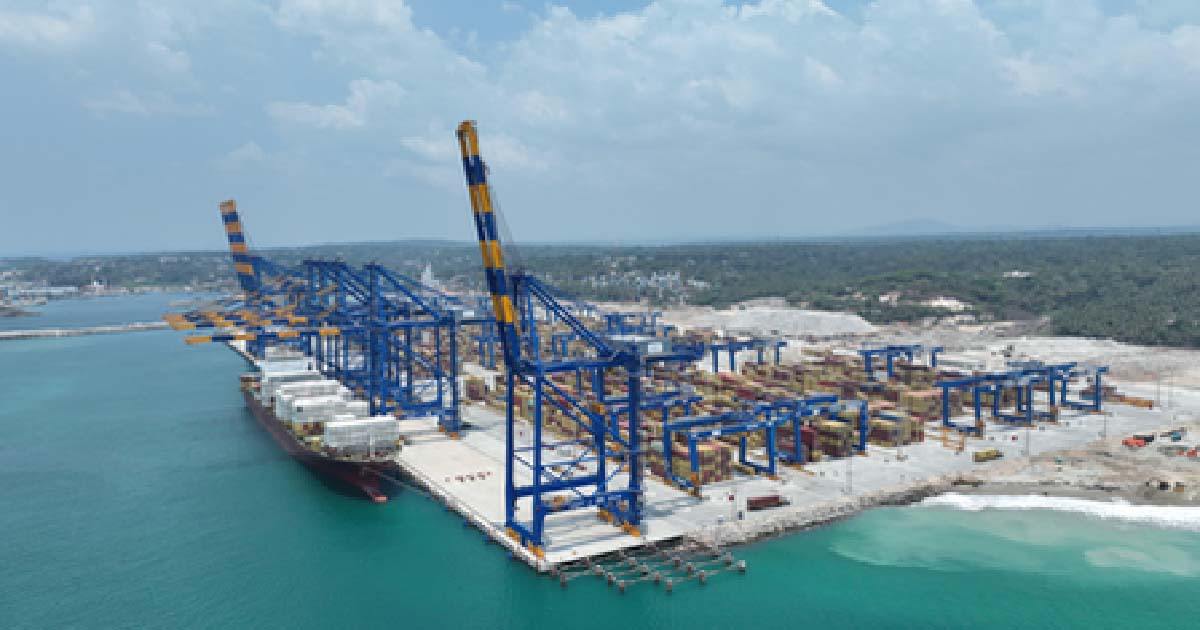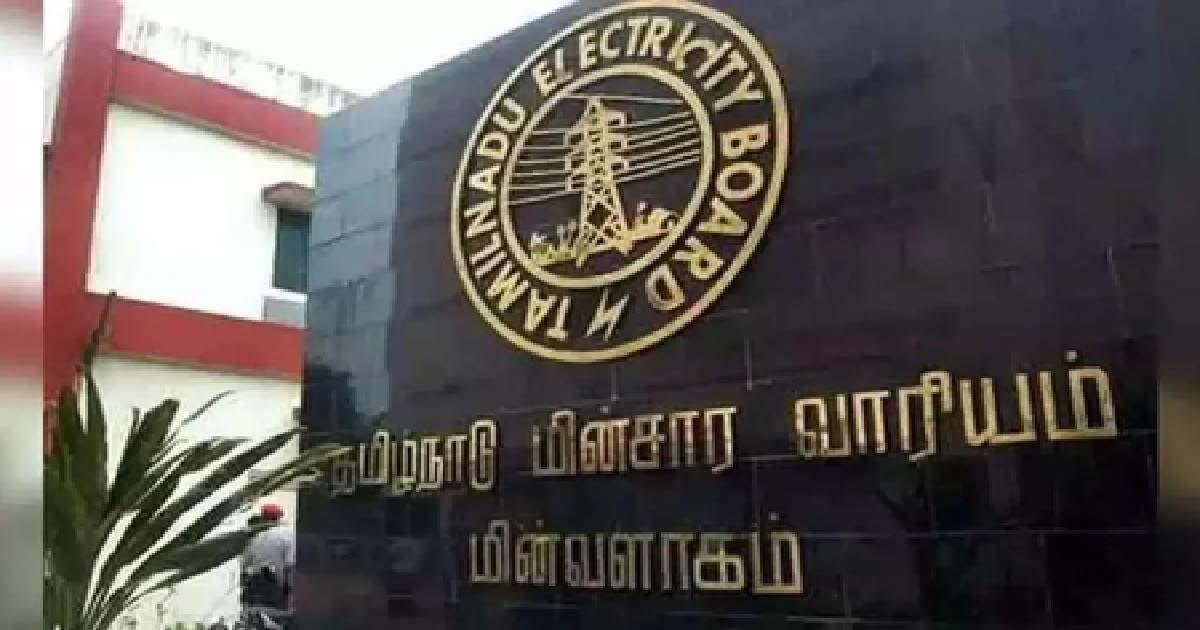Business
Godrej Properties buys 18.6 acre land in Mumbai to develop premium housing project; aims Rs 7,000 cr sales revenue

Godrej Properties Ltd on Friday said it has bought 18.6 acre land at Kandivali in Mumbai to develop a premium housing project and expects sales revenue of about Rs 7,000 crore.
In a regulatory filing, the company informed that the project would have a developable potential of about 3.72 million square feet with an estimated revenue potential of around Rs 7,000 crore.
The project will comprise primarily premium residential apartments with supporting retail spaces.
This will be one of the company’s largest residential developments, and it significantly strengthens the firm’s presence in the western suburbs of Mumbai.
Godrej Properties highlighted that this is the 8th project addition so far this financial year and “takes the cumulative expected booking value from projects added in FY23 to approximately Rs 16,500 crore.”
Godrej Properties, one of the leading real estate developers in the country, had given a full year guidance of adding projects with a booking value potential of Rs 15,000 crore.
To expand its business and create future development pipeline, Godrej Properties acquires land parcels outrightly and also enters into joint development agreements (JDAs) with landowners.
Mohit Malhotra, MD & CEO, Godrej Properties, said the company has added a large and strategically important project in Mumbai.
“This project will allow us to significantly increase our market share in Mumbai over the next several years and fits within our strategy of deepening our presence across key real estate micro markets,” he said.
Malhotra said the company would aim to build an outstanding residential community that creates long-term value for its residents.
The land is strategically placed in a prime locality with excellent access to the Western Express Highway, Metro & Suburban Railway Stations, the company said.
Godrej Properties, a part of business conglomerate Godrej Group, focuses on four key markets — Mumbai Metropolitan Region (MMR), Delhi-NCR, Bengaluru and Pune, although it has a presence in Chennai, Kolkata, Kochi, Ahmedabad, Chandigarh and Nagpur as well.
Godrej Properties has set a target of Rs 10,000 crore sales bookings for 2022-23 as against Rs 7,861 crore registered during the last fiscal year.
It has already clocked a 60 per cent growth in sales bookings during the first half of this fiscal year at Rs 4,929 crore as against Rs 3,072 crore in the year-ago period.
In an interview with PTI last month, Godrej Properties Executive Chairman Pirojsha Godrej had noted that the housing demand continued to be strong despite hike in interest rates on home loans.
He expected a robust sales bookings in the second half of this fiscal.
On financial front, Godrej Properties has reported a 54 per cent increase in consolidated net profit at Rs 54.96 crore in the quarter ended September 2022 on higher income.
Its net profit stood at Rs 35.73 crore in the year-ago period.
Total income also rose to Rs 369.20 crore in the second quarter from Rs 334.22 crore a year ago.
Business
Adani Ports becomes India’s first Integrated Transport Utility to embrace TNFD framework

Ahmedabad, Nov 12: Adani Ports and Special Economic Zone Limited (APSEZ) on Wednesday said it has become India’s first Integrated Transport Utility to embrace the Taskforce on Nature-related Financial Disclosures (TNFD) framework, setting a new benchmark for nature-positive infrastructure development.
With this, APSEZ joins a select league of global port operators championing biodiversity, reinforcing its commitment to safeguarding marine ecosystems through science-based, transparent environmental disclosures.
As a TNFD adopter, the company said it is committed to implementing TNFD-aligned reporting on nature-related dependencies, impacts, risks and opportunities.
The TNFD is a global, science-based initiative founded by a coalition including the United Nations Environment Programme Finance Initiative (UNEP FI), the United Nations Development Programme (UNDP), the World Wildlife Fund (WWF) and Global Canopy, to guide companies in identifying, assessing, managing, and disclosing nature-related risks and opportunities.
“We firmly believe responsible business practices drive long-term success. Our adoption of the TNFD framework demonstrates support for nature-related corporate reporting at COP30. We see nature-related issues as a strategic risk management priority. The TNFD framework provides robust support for integrating nature into our decision-making processes and enhancing our contribution to biodiversity conservation,” said Ashwani Gupta, Whole-Time Director and CEO of APSEZ.
This step further strengthens APSEZ’s dedication to nature-positive business practices and positions it as a leader in sustainable maritime logistics.
As part of this commitment, Adani Ports will further enhance disclosure standards to ensure alignment with the TNFD recommendations in its corporate reporting, starting FY26.
The company has already institutionalised climate risk assessment and disclosure practices that align with globally recognised frameworks and continues to set standards in environmental stewardship, having afforested over 4,200 hectares of mangroves and actively conserving an additional 3,000 hectares — making it the largest private sector contributor to mangrove ecosystem restoration in India.
The new initiative is a key component of APSEZ’s broader ESG strategy and reflects a proactive approach in assessing and addressing nature-related dependencies, impacts, risks, and opportunities.
The company operates a comprehensive ecosystem of 15 strategically located ports and terminals across India’s west, south, and east coasts, combined with a diversified marine fleet of 127 vessels.
Business
TN to spend Rs 25,100 crore on power purchase to meet rising demand

Chennai, Nov 12: With the state’s daily electricity demand averaging 16,000 megawatts (MW), Tamil Nadu is gearing up for a massive power procurement exercise worth over Rs 25,100 crore over the next five years to ensure uninterrupted supply during both regular and peak hours.
According to the Tamil Nadu Generation and Distribution Corporation (TANGEDCO), the state currently generates an average of 3,000 MW from thermal plants, 1,000 MW from hydropower stations, and around 150 MW from gas-based plants.
The remaining demand is met through central generating stations and private power companies. To address the increasing consumption, particularly during high-demand periods, the state has floated tenders to procure 500 MW of electricity every day during peak hours for the next three years. In addition, a five-year tender has been issued to purchase 1,000 MW of power round the clock from private producers.
The peak hours, between 6 a.m. and 10 a.m. and again from 6 p.m. to 10 p.m., are the most expensive period for electricity procurement. Even if the maximum tariff is capped at Rs 8 per unit, the daily expenditure for 500 MW would amount to nearly Rs 3.2 crore, translating to about Rs 3,500 crore over three years.
Meanwhile, the 24-hour supply agreement for 1,000 MW over five years is projected to cost approximately Rs 21,600 crore. Together, the total outlay for both arrangements will reach Rs 25,100 crore.
Officials noted that the decision was made to prevent outages during the upcoming northeast monsoon season and to maintain grid stability as the state’s demand continues to rise steadily.
The government is also exploring renewable energy integration, with a focus on solar and wind sources, to gradually reduce dependence on costly thermal and imported power.
The new procurement strategy is expected to provide crucial support to Tamil Nadu’s industries and domestic consumers alike, ensuring a stable and reliable power supply despite fluctuating generation levels from hydel and renewable sources.
Business
Sensex, Nifty open in green over US-India trade talks, Bihar exit polls

Mumbai, Nov 12: The Indian benchmark indices opened in green zone on Wednesday, amid reports of an imminent India-US trade deal and exit polls in Bihar predicting decisive majority for NDA.
As of 9.25 am, Sensex advanced 496 points, or 0.59 per cent at 84,367 and Nifty inched up 147 points, or 0.58 per cent to 25,842.
The broadcap indices performed in line with the benchmarks, with the Nifty Midcap 100 up 0.55 per cent and the Nifty Smallcap 100 adding 0.61 per cent.
Max Healthcare and Tech Mahindra were among the major gainers in the Nifty Pack, while losers included Maruti Suzuki and Trent.
All sectoral indices were trading in green except Nifty FMCG. mixed with most of them trading with mild negative bias. Nifty IT and Nifty Oil and Gas were the standout gainers — up 1.26 per cent and 0.95 per cent.
“With reports of an imminent India-US trade deal and exit polls showing the NDA winning Bihar, sentiments have improved. This will strengthen bulls but not enough to give markets a decisive breakout and sustained rally,” said market watchers.
Based on current trends, FIIs may sell again at higher levels till the AI trade continues, they added.
From the fundamental perspective, there is room for optimism since GDP growth is robust and earnings growth for FY27 appears bright. Financials, consumption and defence stocks have the potential to lead the next leg of the rally.
Most of the Asia-Pacific markets rose in early trading sessions after Wall Street traded mixed on hopes that the US government shutdown could be nearing an end, even as AI stocks struggled.
The US markets ended mixed overnight, as Nasdaq slipped 0.3 per cent, the S&P 500 added 0.18 per cent, and the Dow inched up 1.2 per cent.
In Asian markets, China’s Shanghai index dipped 0.23 per cent, and Shenzhen dipped 1 per cent, Japan’s Nikkei dipped 0.21 per cent, while Hong Kong’s Hang Seng Index advanced 0.56 per cent. South Korea’s Kospi jumped 0.84 per cent.
On Monday, foreign institutional investors (FIIs) sold equities worth Rs 803 crore, while domestic institutional investors (DIIs) were net buyers of equities worth Rs 2,188 crore.
-

 Crime3 years ago
Crime3 years agoClass 10 student jumps to death in Jaipur
-

 Maharashtra1 year ago
Maharashtra1 year agoMumbai Local Train Update: Central Railway’s New Timetable Comes Into Effect; Check Full List Of Revised Timings & Stations
-

 Maharashtra1 year ago
Maharashtra1 year agoMumbai To Go Toll-Free Tonight! Maharashtra Govt Announces Complete Toll Waiver For Light Motor Vehicles At All 5 Entry Points Of City
-

 Maharashtra1 year ago
Maharashtra1 year agoFalse photo of Imtiaz Jaleel’s rally, exposing the fooling conspiracy
-

 National News1 year ago
National News1 year agoMinistry of Railways rolls out Special Drive 4.0 with focus on digitisation, cleanliness, inclusiveness and grievance redressal
-

 Maharashtra12 months ago
Maharashtra12 months agoMaharashtra Elections 2024: Mumbai Metro & BEST Services Extended Till Midnight On Voting Day
-

 National News1 year ago
National News1 year agoJ&K: 4 Jawans Killed, 28 Injured After Bus Carrying BSF Personnel For Poll Duty Falls Into Gorge In Budgam; Terrifying Visuals Surface
-

 Crime1 year ago
Crime1 year agoBaba Siddique Murder: Mumbai Police Unable To Get Lawrence Bishnoi Custody Due To Home Ministry Order, Says Report












